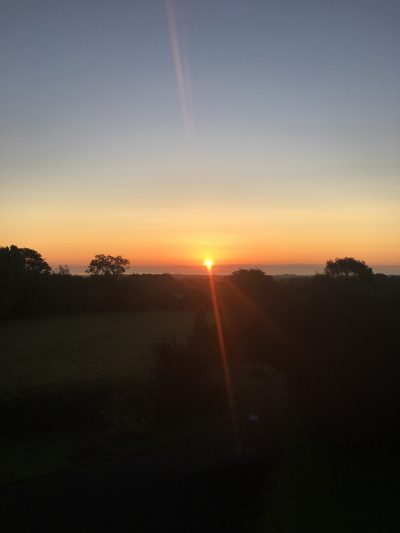Time now for us to rise from sleep

2 Jan. 3 May. 2 Sept.
Let us then at length arise, since the Scripture stirreth us up, saying: It is time now for us to rise from sleep.” And our eyes being open to the deifying light, let us hear with wondering ears what the Divine Voice admonisheth us, daily crying out: “To-day if ye shall hear His voice, harden not your hearts.” And again, “He that hath ears to hear, let him hear what the Spirit saith to the Churches.” And what saith He? “Come, my children, hearken to Me, I will teach you the fear of the Lord. Run while ye have the light of life, lest the darkness of death seize hold of you.”
Saint Benedict begins today, Exsurgamus ergo, “Let us then at length arise.” The monastic life is a continuous, daily, and even hourly participation the death and resurrection of Christ. The monk is always waking, always rising, to the light that shines from the face of Christ. By this, I do not mean that a monk is continuously rising out of a state of death–dealing (i.e. mortal) sin to the life of grace. One enters the cloister to live always in the friendship of God through Christ, in a state of sanctifying grace.
All the traditional monastic observances — the corporalia and the spiritualia — are practiced in order to protect and foster the life of grace, friendship with God in Christ. The corporalia are those observances that more directly engage the body: rising early for the Divine Office, fasting, abstinence, manual work, silence, enclosure, and the wearing of the habit. The spiritualia are those observances that more directly engage the faculties of the soul: psalmody, lectio divina, and adoration of the Most Blessed Sacrament.
For most monks the continuous, daily, hourly death and resurrection consists in a correspondence to actual grace. At every hour Christ is saying to the monk, “Die with me, rise with me.” All of the monastic literature from Saint Antony and the Fathers of the Desert to the biographies and journals of the modern saints is but an account of the deployment of this mystery of death & resurrection in the experience of one man or woman.
It is the word of God, given out superabundantly in the Divine Office and Holy Mass, and repeated in lectio divina that is the normal and quotidian occasion of actual grace in the life of a monk. The word of God stirs a man up, imparts the grace of spiritual resurrection, and shines the deifying light in the soul.
